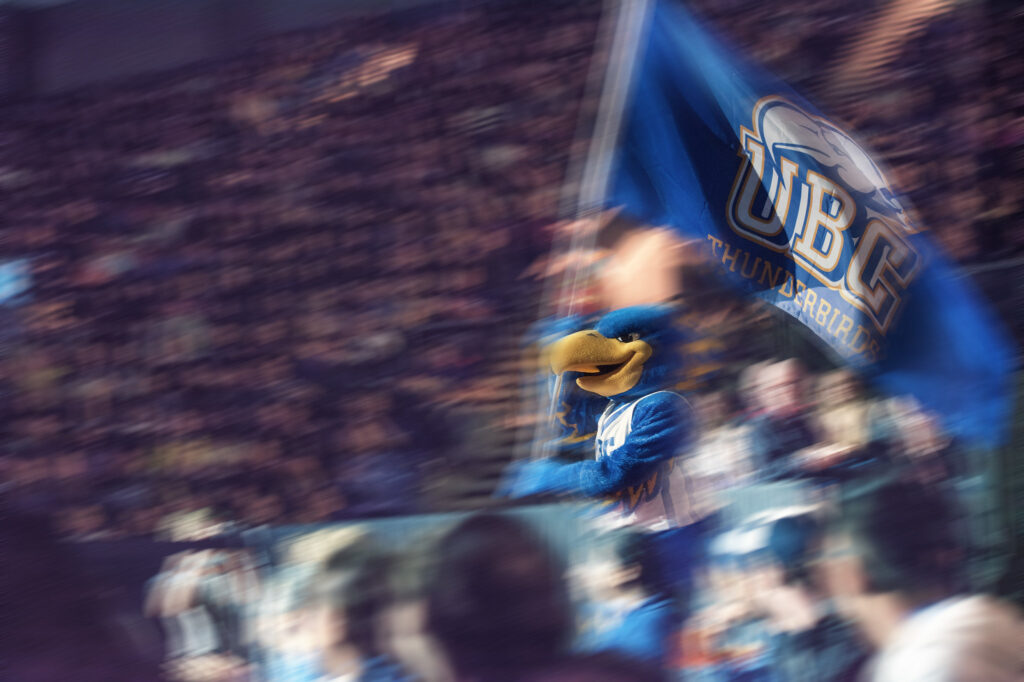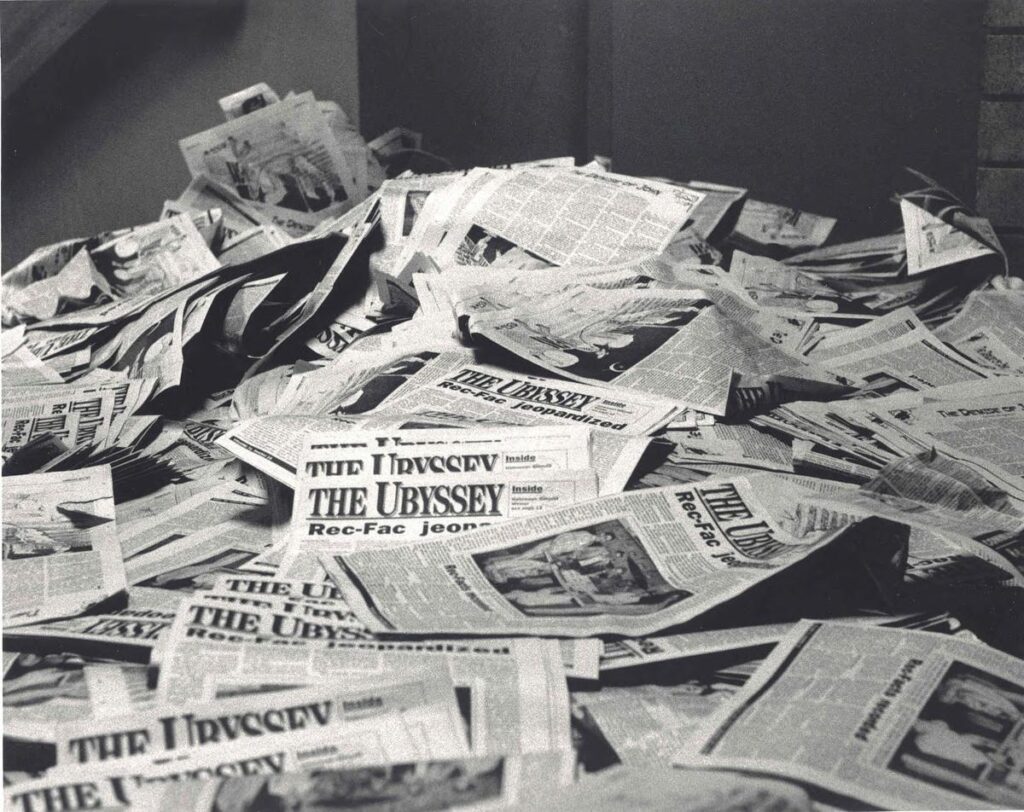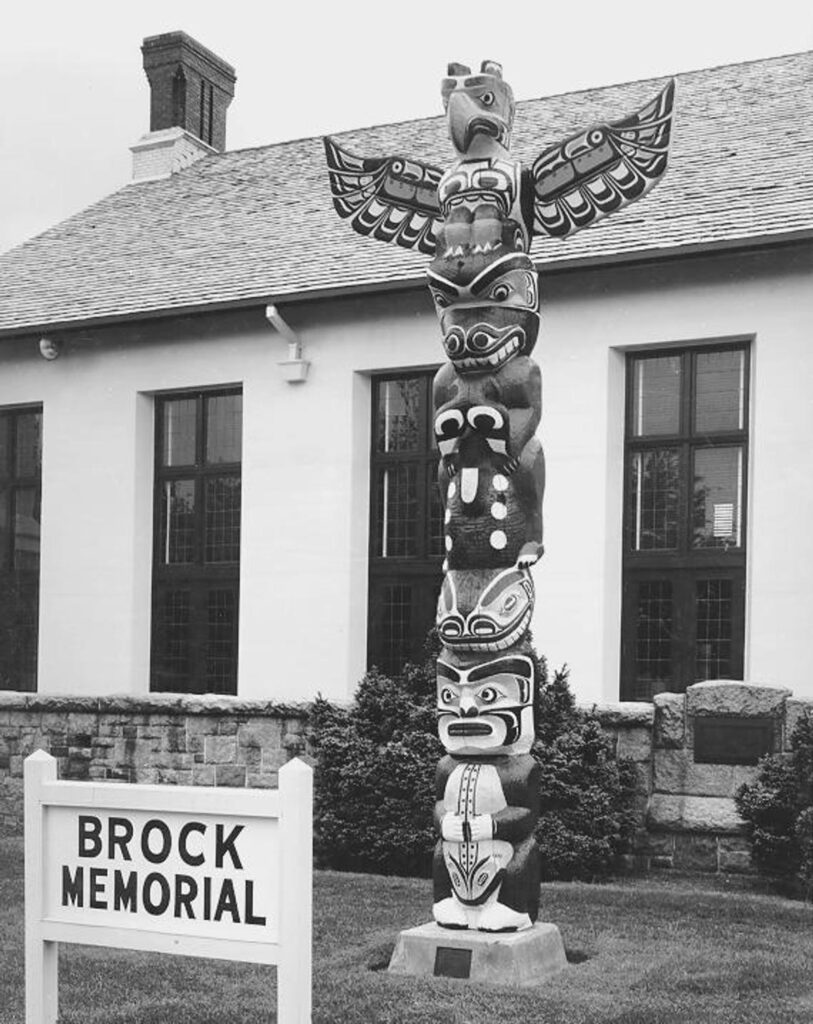
UBC is popularly represented by the Thunderbird mascot, which is often present at campus events and activities. Yet few people know the interesting history behind the mascot. In this blogpost, we will give you a quick run-down of how the beloved Thunderbird came to represent UBC!
How The Name Was Adopted
According to UBC Athletics Historian Fred Hume, during UBC’s first years, the sports teams were only known as the “Varsity” or the “Blue and Gold”. These names lacked a special flavor, so the Sports Department of UBC’s student newspaper, The Ubyssey, decided to act.
In November 1933, The Ubyssey asked for student suggestions and the five most popular names were the Corsairs, Spartans, Thunderbirds, Golden Eagles, and Musqueams. Soon after, the newspaper let the students vote for the winner.

As most of us know, student humor is a timeless phenomenon, which comes into full effect in our story. The write-in suggestion – “Seagulls” – won this survey. However, The Ubyssey wasn’t amused by this practical joke.
Therefore, on January 31st, 1934, the newspaper organized a meeting with UBC’s pep club to decide on the nickname. After a lengthy discussion, “Thunderbird” was the chosen nickname, and UBC sports teams started calling themselves so from February 1st, 1934 onwards.
How The Name Was Officially Sanctioned
But what is the meaning behind “Thunderbird”?
In the mythology of the Indigenous peoples of the North Pacific Coast, the Thunderbird is a powerful and revered creature that offers protection to those under its wings and guarantees camaraderie and peace. During the January 31st meeting, a student reporter named Clarence Idyll strongly suggested this nickname due to its Indigenous connection. Without this argument, “Thunderbird” wouldn’t have won.
It was only until 1948 – 14 years after the nickname was adopted – that UBC received full permission to use the name “Thunderbird” from the Kwakwaka’ wakw people of BC’s West Coast. This happened at halftime of UBC’s Homecoming football game. With over 5,000 people in attendance, Chief William Scow –the chief of the aforementioned Indigenous people and the President of the Native Brotherhood of B.C – dedicated the name to UBC’s official legal use in a traditional ceremony. To this day, UBC is the only institution that is legally allowed to use the Thunderbird name and symbol.

Also, during this event, Indigenous carvers Ellen and Ted Neal gave UBC a totem pole to commemorate the occasion. The original pole (shown above) was unfortunately destroyed in 2000, but the authentic replica now stands outside of UBC Vancouver’s Brock Hall since 2004.
We are glad to share this intriguing part of UBC history in this blogpost! Have you checked out our Campus Spotlight series yet? There is more to learn about UBC; go ahead and explore!